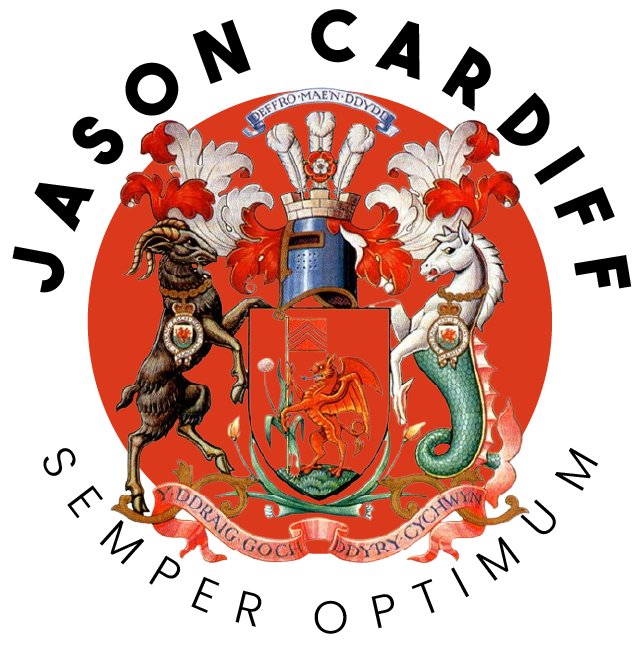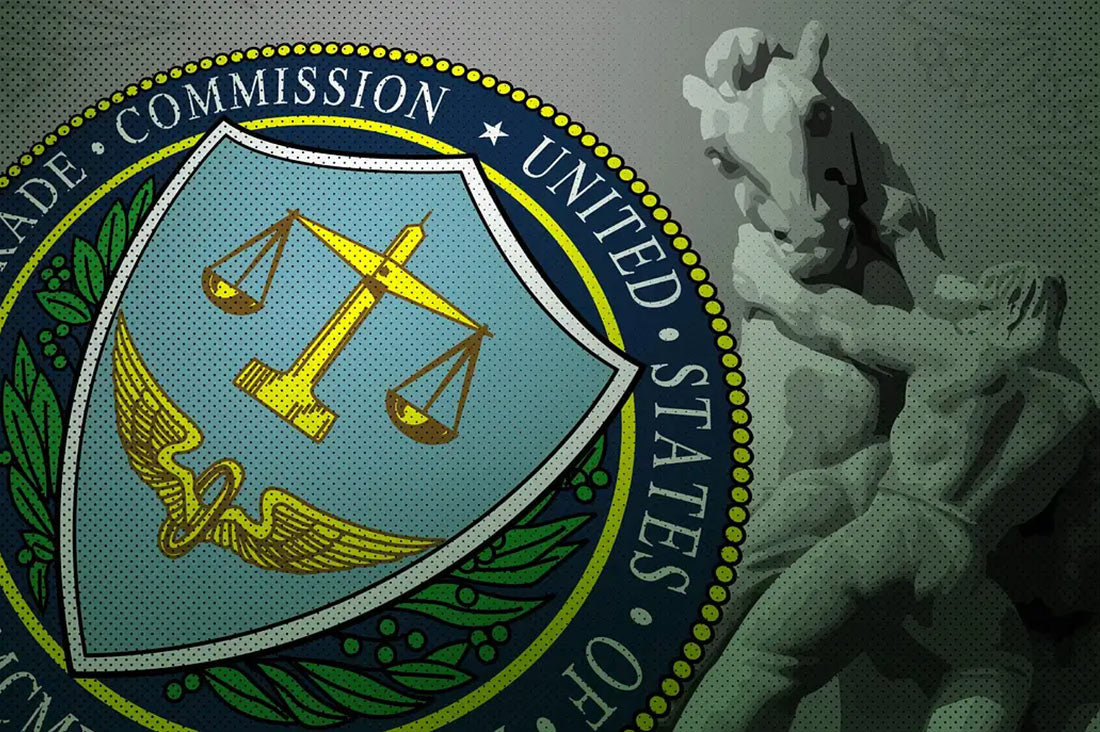
Read More
The Federal Trade Commission filed a lawsuit against Jason Cardiff and Redwood Scientific in October of 2018 seeking $18,000,000 in damages, to forfeit his companies and to be permanently enjoined from every manufacturing thin strip technology products. Instead, the Court denied damages, denied a permanent injunction against Cardiff manufacturing thin strip technology pharmaceutical products and ordered the return of his companies to Cardiff. The allegations fundamentally involved the FTC’s claim that Redwood failed to conduct clinical tests on the efficacy of Redwood’s popular weight loss and tobacco cessation products and the products did not work whereas Redwood claimed that the products contained the active ingredients to produce the desired results.
Redwood agreed that it would conduct the testing prescribed by the Court going forward.
Even though the FTC was offered millions by the Cardiff’s to settle the case, the FTC’s lead litigator, Elizabeth Sanger, refused any dollar amount other than the FTC’s full demand for $18,000,000. Mr. Cardiff says “It is a sad day when the Government is offered millions of dollars to settle a hotly disputed case and they end up getting nothing in the end. “
A few more questions for Mr. Cardiff
How is Redwood Scientific different post Judgement as to its business practices?
A) “It is important to understand this case. We sold products that contained the active ingredients for weight control and tobacco cessations. Over thousands of people gave positive reviews to our tobacco cessation products with many crediting TBX-FREE with helping them to stop smoking. The FTC sued us claiming that we should have tested the products. If the FTC had asked us to test the products, we would taken the products off the market while testing them and provided the results to the FTC. Instead, the FTC got some “testifiers” who they piad to claim that the products were not effective. The FTC and Receiver opposed our request that the Receiver provide funds to test the products. In other words, the FTC did not want to have scientists test the actual products to determine if the FTC’s claims were accurate or truthful. ABA Antitrust Spring Meeting: John Villafranco On Monetary Redress and FTC Enforcement Post-AMG | Kelley Drye & Warren LLP – JDSupra
Ironically after 3 years of the Federal Trade Commission’s litigation, the FTC is in the exact same position it was in in March 2018. Redwood is not barred from selling thin strip products. Once clinical trials are completed, we will be able to safely sell our products to wholesalers and Retailers that are looking for Oral Thin film Products for Drug delivery. We are proud to say we will focus on bringing back our tobacco cessation product with the hope of helping people stop their terrible, life threatening addiction to Nicotine.”
What would you say to the terms used in the FTC Press Release about the Litigation and its outcome?
A) “The Federal Trade Commission appears unable to tell the whole truth about anything regarding this case. Ironically, the FTC is supposedly the agency that protects the public false, misleading and deceptive statements but is making false statements to the public by omission. Significantly, The FTC omits any mention of the fact that the FTC was denied the $18,000,000 it asked the court to impose in Restitution. That would be something that the public might want to know. The FTC was also denied its request to impose a lifetime ban on thin film Manufacturing. While criticizing the me and my family for living a lavish lifestyle, the FTC omitted the fact that I was the largest financial investor in Redwood and was not paid a salary as the Company’s Chief Executive. The FTC spent 4 years on a case and lost every major issue in the case when it could have settled the case. ” Federal Court Rules in Favor of FTC, Halting Illegal Tactics Used to Promote Smoking Cessation, Weight-Loss, and Sexual-Performance Aids | Federal Trade Commission
Why did the FTC go after VPL Medical?
A) “VPL Medical, one of the first manufacturing companies in the USA to make three ply medical face masks. Unfortunately, the Court allowed the Redwood Receiver to take VPL over. Although VPL had already shown substantial profit before a receivership was imposed, the Receiver lost a contract with the U.S. Health and Human Services Department that would have supplied tens of millions of face masks to replenish the Strategic Stockpile and supply state and local governments with face masks during the height of the Pandemic. This was not only a severe financial loss to the public, but caused injury to our country’s readiness to supply PPE to its citizens. 20-55858.pdf (uscourts.gov)
Did Redwood or any of your Companies ever have a Muti Level Marketing platform or MLM and can you tell us why it was part of the Litigation.
A) “Great question, neither Redwood or any other company I owned was an MLM company. We don’t know why they wanted to include MLM but bottom line, we did not care if we ever have an Multi-Level Marketing company because it’s just not what we do. Redwood focuses on known active ingredients that worked and the delivery mechanism of Oral Thin Film stirps. For some reason we caught the attention of a blogger that lives in hiding in Taiwan with a site called Behind the MLM. Bottom line the sites is a fraud site and the blogger is a known misinformation writer pushing his own agenda.” BehindMLM: Latest MLM news and reviews
How much of role did your counsel play in this case we see you have over 714 filing on the federal court Docket.
A) “ This was one of the most complex pieces of litigation you can ask for. The FTC started with an ex parte restraining order that seized all my assets and company assets which would have been used to defend ourselves. This was a huge advantage that was improperly granted almost four decades ago by the Ninth Circuit and adopted in other jurisdictions. We started with attorneys who did the best that they could but the FTC was able to succeed based on prior precedent. Steve Cochell successfully pursued FTC v. Credit Bureau Center, a case in which the Seventh Circuit reversed the FTC’s misuse of Section 13(b). The Supreme Court unanimously struck down the FTC’s use of Section 13(b) as a source of authority to seize the assets of companies, their owners and impose receiverships. Federal Trade Commission v. Jason Cardiff et al Court Docket Sheet (docketbird.com)
This was a true “David-versus-Goliath” case where we were up against the US Federal Government and an agency with over 1000 attorneys. The FTC appeared to have spent a huge amount of resources with no less than six lawyers, and numerous paralegal and staff to bring and litigate this case. This was an extremely difficult case to defend because the FTC has overwhelming resources and both my funds and company were seized by the Receiver so we were left with no funds to support ourselves or pay a lawyer. Steve Cochell has outlitigated the FTC in this and several other cases and is truly one of the best lawyers out there for FTC cases. Cochell Law Firm Racks Up Major Wins Against the FTC
You had a lot of filing and issues with the receiver what is your side of what happened?
A) “The system is corrupt and should be changed. The only people who “won” this case was the Receiver, who billed over $2.5 Million during this case. While the FTC claims it represents “victims”, the Agency turned down our offers to settle the case, get VPL out of receivership and help pay alleged victims out of profits. Although the Receiver was supposed to operate the Company, he shut down the operation, he did not even visit the factory for almost a month or take action to make sure that we were able to perform a multi-million dollar contract with the HHS. The district courts appoint receivers, who are nominated by the FTC and are often involved in numerous other FTC cases, and the Courts uncritically appoint these individuals as an arm of the Court. Instead, the receivers take sides early on favoring the FTC in the name of compensating victims of the alleged fraud. The Receivers routinely make hundreds of thousands, if not millions of dollars leaving victims uncompensated.
Based on unsubstantiated hearsay by people with no engineering expertise, the Receiver claimed our production lines were inoperable and that VPL was a scam. It took months to get the Court to order the Receiver to pay our Chief Engineer, who got all the production lines up and running within two weeks despite the Receiver’s false, unsupported claims. The Receiver never took responsibility nor did the Court hold the receiver responsible for making such a basic error that likely cost VPL millions in revenues.
Despite getting paid almost 100% throughout this case, the Receiver Lawyer is listed as receiving $800,000 for Payroll Protection Program (“PPP”) by another arm of the federal government. Seems to me that somebody should be looking into how this large receivership firm somehow got paid for doing receivership work and then got funds for PPP.
The Receiver’s lawyer knew that the Receiver was deceased, but did not disclose that fact to the Receiver was dead, and that the principal members of his firm were dead. Given the fact that the accountant undertook the receivership duties without any notice from the Court, we reported this matter to the Court. Unfortunately, the Court decided to take no action.
What did you think of the Judge in this case: Dolly Gee.
A) “Well, that is complicated to answer. At times, Judge Gee appeared to make rulings that expanded the power of receiverships. We took exception to her ruling that receivers are entitled to seize property that is unrelated to the entire underlying fraud. This is the result we believe is stated and set out in SEC v. Liu, a Supreme Court case from 2020. However, Judge Gee held that the Supreme Court’s decision in Liu was limited only to SEC cases, which is totally contrary to the broad unlimited language of the Court. On the other hand, Judge Gee refused to allow the FTC to present evidence of damages that it sought to introduce and ruled that the FTC failed to properly disclose the damages under the Rules of Civil Procedure. This was a major loss for the FTC. Of course, they did not put that in their Press Release! Honorable Dolly M. Gee | Central District of California | United States District Court (uscourts.gov)
What is your recommendation to people accused of FTC violations?
“My advice to people who are accused of FTC violations find lawyers who are experienced in FTC litigation and can aggressively defend you. This is not the kind of case that you give to your family lawyer or someone who is a good litigator, but unfamiliar with FTC litigation.”
Mr. Cardiff went on to say that, “his companies and future are brighter than ever and looks forward to participating in any debate about the behavior the FTC as a rouge agency that can seem to follow the law. It is strange that an agency that is supposed to help companies abide by the law however the FTC cannot even follow the law themselves.”



